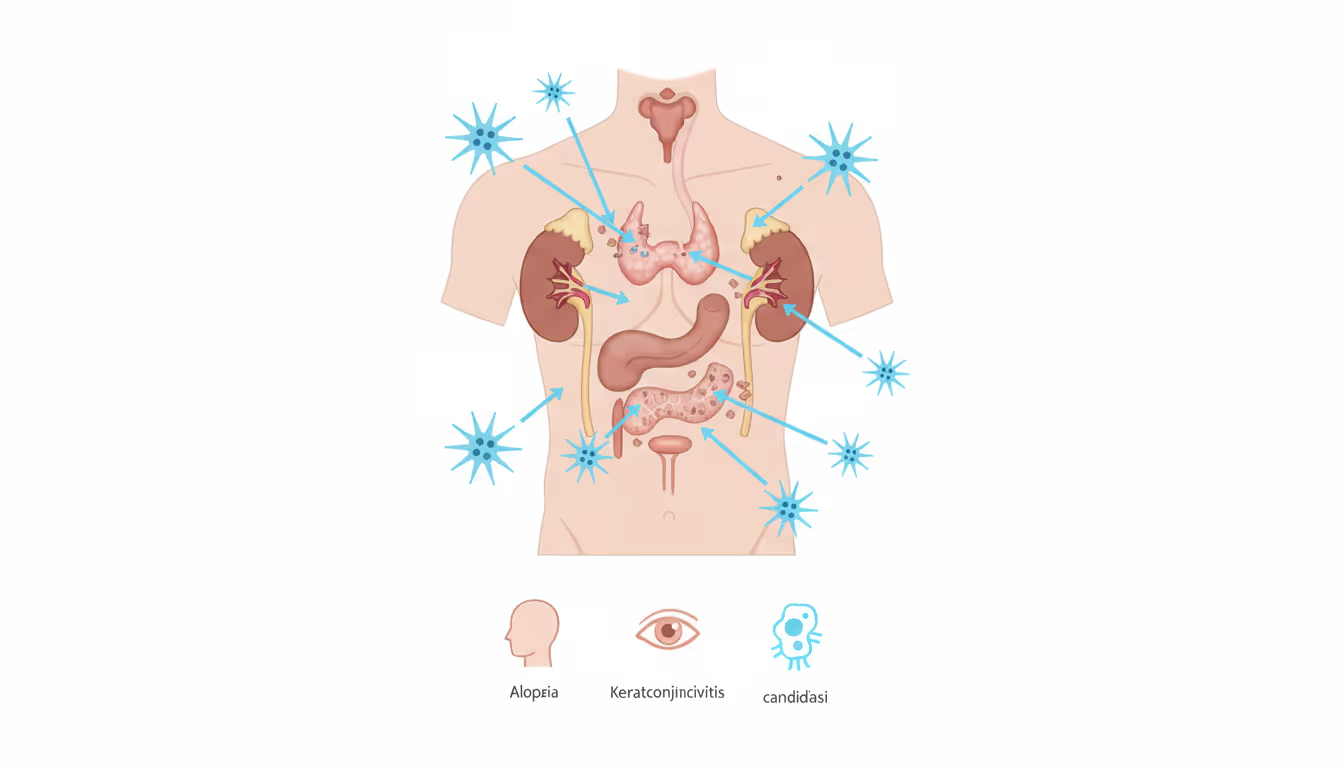
Polyglandular autoimmune syndrome (PGA) is a genetic disorder marked by a wide range of clinical symptoms, most commonly presenting with at least two of the following: reduced function of the parathyroid glands, which manage calcium levels, and adrenal insufficiency. This syndrome was the first bodywide disease identified as stemming from a defect in a single gene.The term "autoimmune" refers to the immune system, which typically protects the body from external invaders, mistakenly attacking the body's own tissues such as the skin, joints, liver, and more. Common systemic autoimmune diseases include rheumatoid arthritis, lupus, Sjögren's syndrome, Goodpasture syndrome, vitiligo, thyroiditis, among others.In 1997, researchers discovered a new gene located in chromosome region 21q22.3, named AIRE for autoimmune regulator. Mutations in the AIRE gene cause PGA. The syndrome is inherited in a recessive manner, meaning a child must inherit two mutated AIRE genes, one from each parent, to exhibit the disease. Although PGA is generally uncommon, it occurs more frequently in three genetically isolated groups: Finnish people, Iranian Jews, and Sardinians.Children with PGA experience dysfunction in several glands (polyglandular), which may include hypoparathyroidism, gonadal failure, adrenal insufficiency, type 1 diabetes (insulin-dependent) due to inadequate insulin production by the pancreas, and reduced gland function. Additional symptoms may involve total hair loss (alopecia totalis), eye inflammation (keratoconjunctivitis), underdeveloped tooth enamel, early-onset yeast infections, juvenile-onset pernicious anemia, gastrointestinal issues (like diarrhea), and chronic active hepatitis.Lab tests confirm the presence of an immune disorder, showing lower than normal levels of gammaglobulin antibodies in the blood (hypogammaglobulinemia) and an atypical T4/T8 white blood cell ratio. Evidence includes antibodies targeting the adrenal and thyroid glands, as well as cell nuclei (antiadrenal, antithyroid, and antinuclear antibodies).Treatment for PGA focuses on addressing the specific symptoms: hormone replacements for deficiencies, insulin for diabetes, and managing yeast infections, among others. However, no cure for PGA has been discovered. The prognosis depends on effectively managing hormone deficiencies and controlling infections.PGA is known by several other names, such as autoimmune polyglandular syndrome (APS), autoimmune polyendocrinopathy-candidiasis-ectodermal dystrophy (APECED), autoimmune polyendocrinopathy syndrome, hypoadrenocorticism with hypoparathyroidism and candidiasis, and polyglandular deficiency syndrome.




